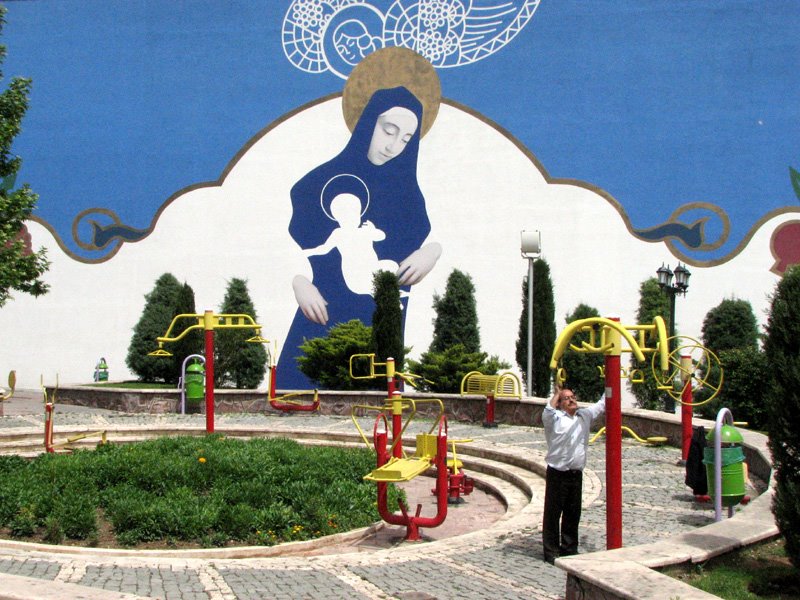We were flipping through television channels at my parents’ Los Angeles home, when a black-and-white image of a young girl interrogated by a nun came on. Suddenly my mom squealed, “Avayih Bernadette!” I looked at her, puzzled, and she said, “I remember this film! I haven’t seen it since I left Iran.”
For a few Christmas holidays after 1979, state-controlled television outlets broadcast The Song of Bernadette, dubbed in Persian as Ahang-i Bernadette or Avayih Bernadette. This occurred despite the Iranian government’s restriction on most forms of American media, especially in the years immediately following the Revolution. The Song of Bernadette (1943) is an award-winning Hollywood film based on the story of Saint Bernadette in mid-nineteenth century France.
The film follows the story of Bernadette Soubirous, a young French peasant girl who has visions of the Virgin Mary. The Virgin Mary appears to Bernadette as a young person close to her own age, introducing herself as “the Immaculate Conception.” The vision also commanded Bernadette to “drink from the spring” although there was no spring near her. These visions came to be associated with various miracles – a spring soon appeared at the site where she saw the Virgin Mary and stories of the curative power of its water all played a significant role in her later beatification. Even the phrase “I am the Immaculate Conception,” came to be known as its own miracle, as Church investigations claimed that Bernadette could not have known about the ongoing debate over the Virgin Mary’s status.

The Islamic Republic’s use of The Song of Bernadette allowed the state to acknowledge Christmas in an Islamically palatable way. The film, for example, does not focus on the biggest defining factor between Christian and Muslim belief – the crucifixion of Christ. Rather, it highlights and emphasizes the role of the Virgin Mary, a figure especially important in Islam who plays a large role in the Qur’anic narrative. Muslims believe in both the Virgin Mary’s high status among creation as well as the miracle of Christ’s birth.
The Islamic Republic has emphasized the Virgin Mary’s importance through other media, including the Virgin Mary Park in Tehran, as well as a feature length film, Maryam-i Muqaddas. Finally, visions of saints are commonly reported in Muslim societies, and the association of Bernadette’s ability to see and interact with the Virgin Mary as proof for her sainthood is a concept with strong parallels in the Islamic world.

By the war’s end, access to varied forms of state-approved and satellite media displaced the Christmas tradition of watching The Song of Bernadette. But this is the unlikely story of how many Iranians came to associate an American film about a young French girl with Christmastime during the Iran-Iraq War.
Watch it here dubbed in Persian.











